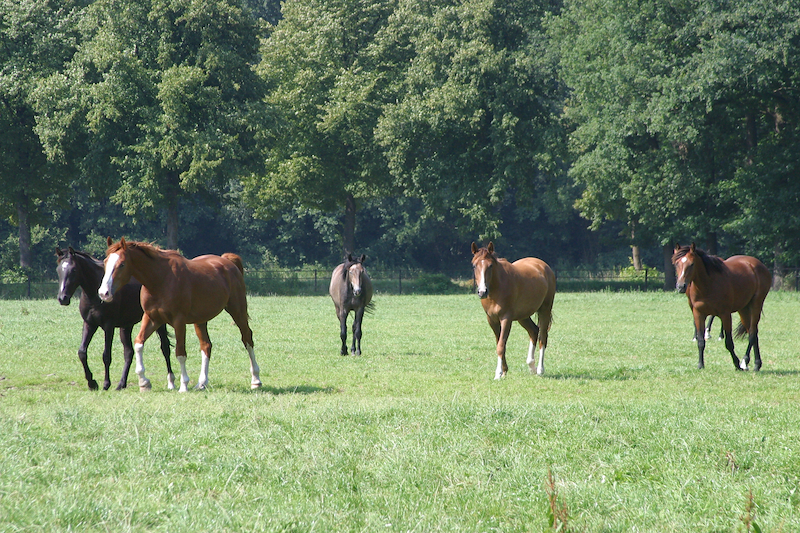Biological necessity
In every season, it is essential that horses not only continue to have sufficient free exercise every day, but it’s also important that they always have the opportunity for social interaction. The basic principle here is: think like a horse, not for a horse.
This need for social contact is not some idea of welfare gurus but has a clear neurobiological background: these are behaviors that are irreplaceable and necessary for a horse’s survival and therefore must be guaranteed. Van Dierendonck explains: "Examples of this behavior are body care, foraging for food or being social: repeating it over and over again has an effect. As a human being you have to shower several times a week; as a horse you have to maintain social contacts otherwise you have to keep watching out for yourself – because you can't eat and you have no defense - when danger comes. To ensure that an animal always can perform these irreplaceable behaviors, these behaviors are anchored in the brain: performing them provides a good feeling, because opiates are released in the reward center of the brain. Therefore, social behavior is also called a ‘natural addiction’. And all mammals have these brain structures. So selective breeding cannot eliminate it. Body care, foraging and social behavior are a biological necessity, compare this to my earlier comment about the absence of a gall bladder, which makes movement essential. We have to adapt to the horse; the horses cannot adapt to us in these areas. In fact, if a horse cannot perform these behaviors because the housing prevents it, they will look for an alternative to do so. We often call this 'abnormal behavior', but in fact it is normal behavior in an abnormal environment! The natural rhythm of a horse consists of two to three hours of eating and then an hour of rest, and that continues for 24 hours a day. "If we reduce that to two meals and an hour of riding a day and maybe another half hour in the horse walker, that's not good for the horse, as research shows."
Frustrated
Lack of movement and social interaction can have a detrimental effect on a horse's state of mind and health: it becomes frustrated. A horse can become (very) tense, hyperactive, show stable vices or be more difficult to ride (a safety hazard). Or he may become far too 'calm' (depressed according to some researchers). The horse also becomes physically weaker. If the horse is kept in a box all day and can only move left and right, as it were, and is only ridden for an hour on flat ground, the cartilage, tendons and muscles are not sufficiently stimulated and strengthened. Machteld van Dierendonck explains: "It's like with people: nobody gets stronger from doing nothing. Every day free movement on uneven ground stimulates all those tissues. Also, the digestive system of the horse is stimulated by movement.
Next week you will read more about practice of horses and their welfare.























 KWPN Database
KWPN Database KWPN.tv
KWPN.tv KWPN Horses for Sale
KWPN Horses for Sale